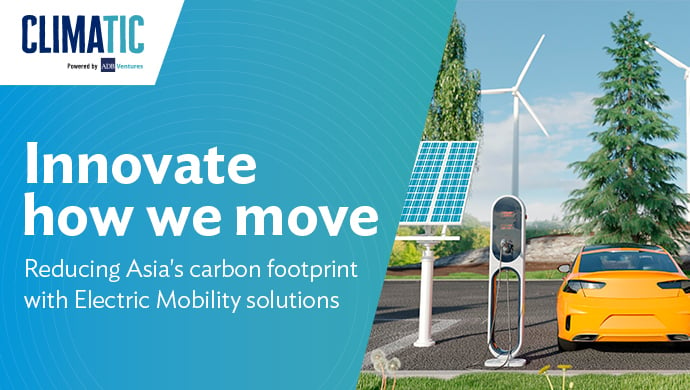
A few days ago, Kia announced that their electric vehicle sales exceeded 10,000 units just in September 2021. Hyundai also reported over 16,000 units of the plug-in electric vehicles sold in the same month.
In 2020, in a year where the pandemic halted almost all industries and when overall car sales globally dropped by 16 per cent, electric car registrations rose by a whopping 41 per cent. And that’s just passenger vehicles; it doesn’t include three-wheelers and electric motorbikes.
In a world at dire risk of missing its climate targets, electric vehicles seem like the carbon-mitigation technology with the best potential to scale commercially, capturing both the world’s imagination and its wallets.
But are electric vehicles really more climate-friendly?
For Sohail Hasnie, Principal Energy Specialist at the Asian Development Bank, the answer is yes.
He posed the comparison between a fuel-run vehicle versus an electric vehicle travelling 100 kilometres. “If you want to do 100 kilometres on the Toyota Corolla, you need about eight litres of petrol. And that eight litres of petrol when you burn it, it will produce about 18 kilograms of carbon dioxide,” Hasnie said.
Whereas, at the same distance travelled, an electric vehicle requires about 20 kilowatts of electricity, emitting 9 kilograms of carbon dioxide-based on today’s electricity generation source.
“So, 18 kilograms of carbon dioxide versus nine kilograms for the same distance. It’s phenomenal,” Hasnie added.
And it’s not just in the actual vehicle itself that electric vehicles get more climate-friendly. Wavemaker Partners-funded Summit Nanotech, for example, are exploring greener, faster, and more affordable ways of extracting lithium, which the industry will need as it scales. Then there is The Flow, a company that is working on flow batteries that can easily be used in existing service stations to alleviate some energy source pain points electric vehicle owners may encounter.
With these possibilities of more efficient yet greener batteries and energy grids comes the greater possibility of converting commercial fleets to electric.
“We’re interested in how you’re going to charge those fleets, but also how are you going to route those fleets to the city, how are you going to maintain the batteries over time and how are you going to resell those cars, long term,” says Doug Parker, an automotive startup founder turned investor at Wavemaker Partners.
This is precisely what Euler Motors is working on. According to their founder, Saurav Kumar, Eular Motors was started with the aim of helping combat climate change by decreasing air pollution
“If you look at the segments that commit or give you a lot of air pollution, it’s the commercial vehicles, then the two-wheelers, small two-wheelers, and then you have obviously four-wheelers in it,” Kumar said. “But they [the other three segments] do not contribute as much as these commercial vehicles.”
And while it is early days yet for Euler Motors, interest in the product is promising. Just in the previous month, they have received orders for 2,500 units of their three-wheeler electric vehicle from various e-commerce and grocery stores in India.
There is growing, tangible support for the shift to electric vehicles
It took less than five years from when the Nissan LEAF came out to reach the one million electric vehicle units running mark, significantly taking less and less time for every million. Now, we are at ten million electric vehicles running globally.
This is widely because of the increased awareness of the environmental benefits of electric vehicles, as well as better technology that creates better vehicles.
A huge cause for the adoption, though, can be attributed to two things: the Paris Climate Change Accord, and the United Nations Sustainable Development Goals.
With the government-level commitment to these two international agreements, there is assured support for the move that even traditional industries are in on it, with a lot of large corporations announcing plans to aim for Net Zero carbon emissions.
The time is ripe for electric vehicles to flourish
Government support and company commitments to Net Zero make it all the more possible for the electric vehicle industry to grow.
The role of startups in this shift is crucial: as technology gets better and the transition of energy sources from fossil fuels to alternative sources get faster, startups have the advantage of being able to move at the same pace.
Paired with an ecosystem that is coming together — from cleaner energy sources, better energy storage, manufacturing of vehicles, and public and private companies’ transition to more sustainable transport systems — electric vehicles may soon become the norm for a region that aims to save the planet.
The Climatic Series Episode 2
In this episode of the Climatic Series, we take a look at how electric vehicles are changing the vehicle manufacturing industries’ perspective especially in light of climate issues, and meet startups, investors, and other stakeholders who are working on building a sustainable ecosystem across the region to help scale the reach and impact of electric vehicles.
Watch the Talkshow here. Open call application here.
– –
This article is produced by the e27 team, sponsored by ADB Ventures
We can share your story at e27, too. Engage the Southeast Asian tech ecosystem by bringing your story to the world. Visit us at e27.co/advertise to get started.
The post The growth of electric vehicles is saving the planet, one trip at a time appeared first on e27.

